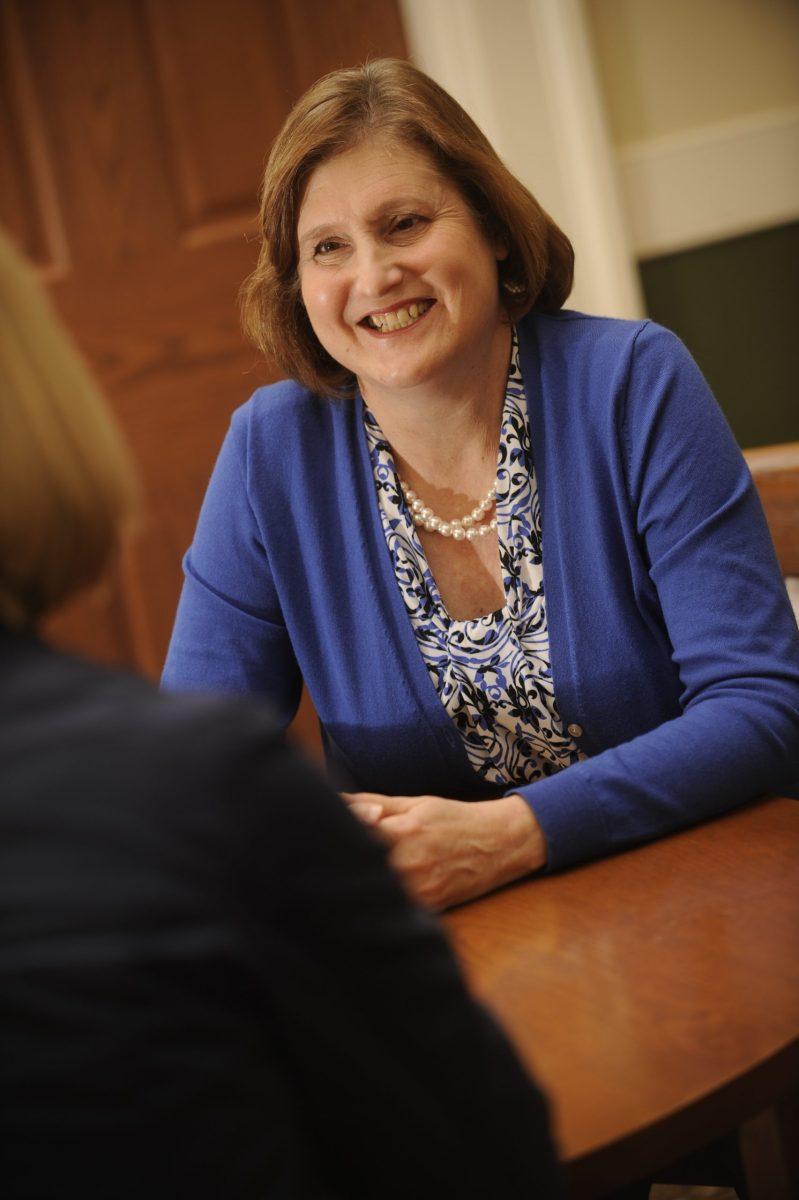By: Steele Smith, staff writer
Recently, the Old Gold and Black had the opportunity to sit down with Dr. Carol Wilson, professor of English and coordinator of academic advising, and discuss the liberal arts educational experience at Wofford. The conversation began with the question: what makes a Wofford education unique?
“Unique is a hard word for me, because, after all, all Wofford graduates earn a Wofford degree,” she said. “But a Wofford education is unique because individual students make their own choices within their experiences here. So, a Wofford education is unique in the students’ personal goals, the paths that bring them to Wofford, their motivations, their interests and their choices among curricular and co-curricular opportunities at the college.” This idea has come up in class discussion during her first-year humanities class.
“The idea that you receive an education is simply not true,” she elaborated. “You have to work for it; you have to put your hands and mind on it, shape it and create it.”
She stressed that in many cases it is not the institution that one attends that determines how great of an education he or she receives, but rather the individual’s willingness to seek opportunities where they are.
“The unique education occurs at the intersection among what the school offers, expects, requires, supports and what the student brings in terms of motivation, expectation, willingness to grow and willingness to risk appropriately and take advantage of things,” she added.
Dr. Wilson described Wofford as being great at opening access for its students. The premise behind the liberal arts education is to expose students to a wide range of fields of study in the hopes that their interests will expand and shift. As students grow in their interests, Wofford is there to make it possible for them to freely explore those possibilities.
Dr. Wilson painted a picture of Wofford as a place where students are not simply given a list with a bunch of boxes they have to check off.
“We give you opportunities, but also say that it is your responsibility to step in and do them,” she remarked. “That’s the expectation from the admissions process through orientation, through your first year and through picking a major. That’s different from an academic program that asks students to check requirements on a list without the added responsibility or opportunity to choose outside requirements.”
She further explained this concept in relation to her role as a student advisor.
“If I’m an advisor and a faculty member and I talk with a student, I’m teaching. I’m teaching you about our curriculum. I hope I’m asking questions that challenge you to learn about yourself, to think about goals and to think about possibilities,” said Wilson.
She spoke further about the need for students to understand that the college is here to encourage the educational freedom of students. They can create their own paths. She expressed a belief that Wofford is an excellent place to gain knowledge in areas and disciplines outside of one’s major(s).
“If you’re going to be pre-med, understanding psychology is good for you because you have to talk to people. Please come to my department and take some communications classes, too, because you have to talk to people like me about highly specialized information,” she said.
Dr. Wilson shared how difficult it is for some students to grasp the idea that not every class needs to fulfill a requirement, which she experiences often in advising.
“I think we have to free people from believing that electives don’t count,” she said. “In some ways, they are essential, because students choose them from their interests and hopes, not from requirements. I think that has to be active on [the college’s] part. We can’t look at students and say, ‘well why won’t you just choose,’ because I’m not sure how much choice they’ve ever had before.”
She related this to the rigorous nature of Wofford’s academics, explaining that, “No matter what you major in, you’re going to work hard in it. Choosing a major helps you decide, ‘what do I want to work hard in?’” Working hard at what you truly love and desire to have is better than working hard at something you feel is simply the path set before you. Even when results are uncertain, the enjoyment and peace that you feel pursuing what you love is undeniable.
“There is something to be said for your education teaching you to follow your interests, your talents and your heart into a world where you use them not only for your own wellbeing, but also for the good of your community,” she said. This is part of the college’s mission statement and also something Wilson takes pride in personally.
She ends with a thought-provoking statement.
“When you leave Wofford, you are no more finished than when you entered. We call the graduation ceremony ‘commencement’ because you are still beginning. If students graduate thinking of future possibilities and continued growth, we all—students and faculty– have succeeded. What do we do here? We foster this attitude: ‘I have entered Wofford with opportunities to learn and grow, and I will leave here having done that. But I’ll also leave looking for more opportunities to learn and grow, to contribute to other communities, and the world, with better skills, abilities, wider interests and deeper knowledge.”






























